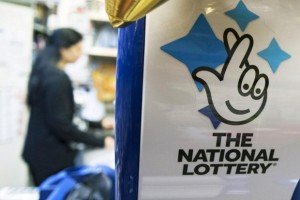
As a statistician, Sir David Spiegelhalter is clear about the National Lottery. “It’s a rotten bet,” he said. “I never buy tickets.” Naturally, then, he is ignoring today’s record jackpot? Well, not exactly. “I’ve already bought my ticket.”
With the top prize in tonight’s draw approaching £60 million, and new rules stating that there must be a winner, Sir David — Winton professor for the public understanding of risk at Cambridge — is not the only statistician reconsidering his stance.
“Normally, the expected return is very poor. It is much better to play roulette,” he said. Less than 50 per cent of ticket money funds prizes in the lottery, compared with about 95 per cent in roulette. A change to the rules, however, means that for this week only the odds are better.
Last summer, ten extra numbers were added, raising the odds against a jackpot from one in 14 million to one in 45 million. To stop the rollovers continuing indefinitely, another rule was introduced: if the jackpot came to exceed £50 million, the money would be divided at the next draw — even if nobody got all six numbers.
This week, after a £50.4 million jackpot was not won on Wednesday, not only is the pot boosted, but it is sure to be distributed. “I’m betting on nobody winning and having the prize shared among people who get five balls and the bonus ball,” Sir David said. He still would not recommend buying a ticket as a rational decision.
John Haigh, from the University of Sussex, has not bought a ticket — but he gives a good reason that doing so is, for once, not a terrible idea. “It’s getting close to making arithmetical sense to get a ticket,” he said. If enough tickets are sold, the expected return on one ticket could approach its £2 cost; the total prize pool distributed may equal the amount spent on tickets.
At £2 a ticket, buying every combination would cost £90 million — £40 million of which would come straight back, in prize money, even in a normal week. “If you were the only person buying tickets [and] you spent £90 million, got back £40 million, but also scooped the £60 million jackpot — that takes you pretty close,” Dr Haigh said. “The only way it makes sense, though, is if you are the only person who wins the jackpot.”
Number crunching
• No set of numbers is more likely to win than any other, but some are far more popular, which means if they come up you will share your winnings.
• People are incapable of choosing randomly. Common mistakes are to choose dates, meaning numbers under 31 are more common, and to spread picks evenly through the 59 numbers.
• The simplest way to avoid such bias is to use a lucky dip and let a computer choose.
Get At Me: